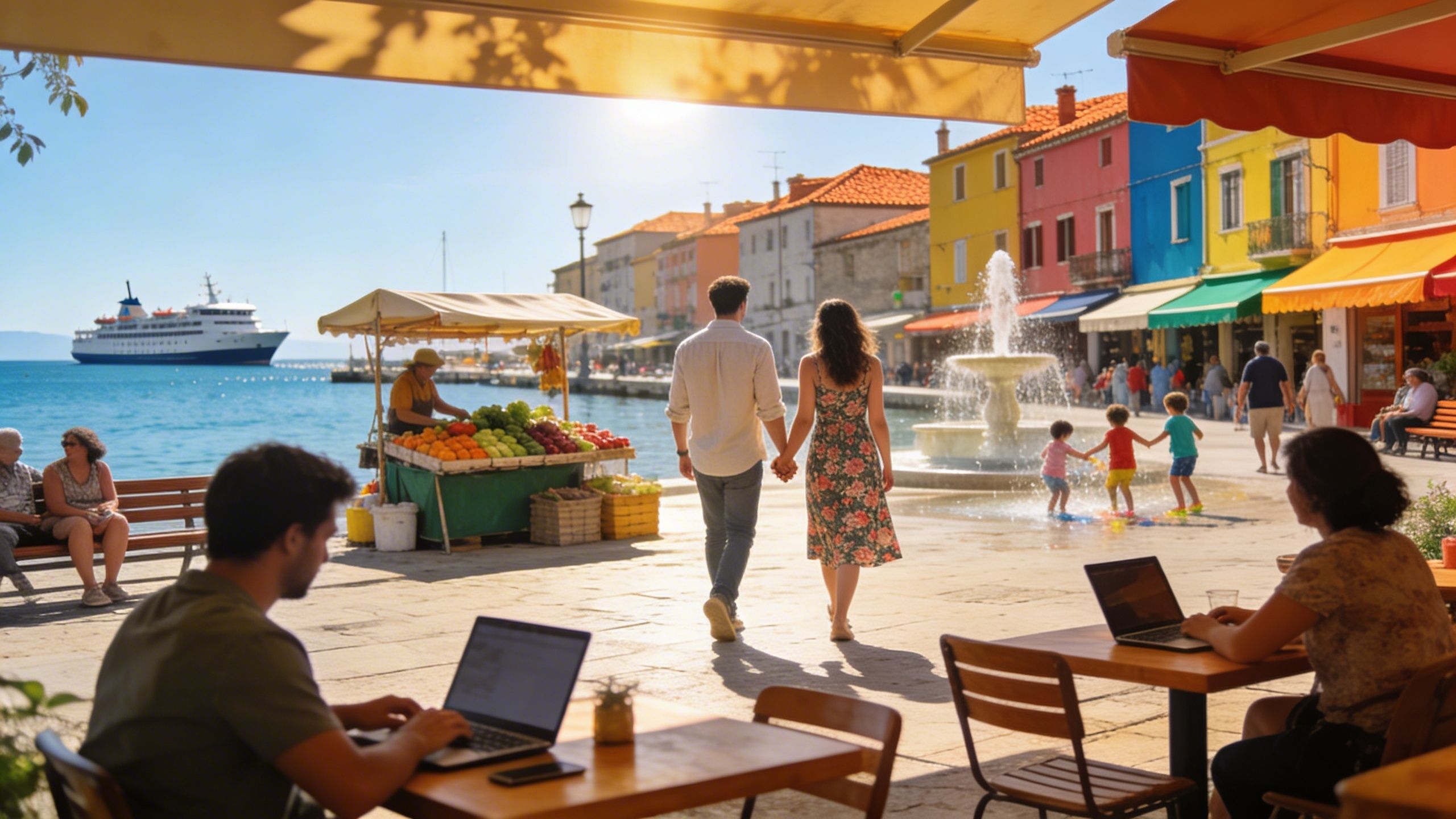Why Cyprus Title Deeds Are Your Must‑Check Before You Buy
In Cyprus the title deed is the single most important due‑diligence check — insist on it early, use a local lawyer and match property type to the island’s lifestyle and seasonality.
Imagine sitting at a waterfront café in Limassol, laptop open, sea breeze through your hair and a developer’s brochure on the table. The island feels small, bright and endlessly liveable — beaches, mountain villages, century‑old tavernas and a coffee culture that stretches from Nicosia’s pedestrian streets to Paphos’ harbor. But the key legal document that turns that brochure into a secure home is less romantic: the title deed. Start with it, and you protect the life you’re buying.
Living Cyprus: sunlit routines, village rhythms

Cyprus is a rhythm of golden mornings and relaxed evenings. Picture early espresso at Finikoudes promenade in Larnaca, weekends at Coral Bay in Paphos, glass of commandaria after a slow dinner in Omodos. Workdays flex between beach runs and co‑working sessions in Limassol’s Old Port; neighbors are a mix of Greek‑speakers, long‑term British expats and a growing digital nomad crowd. That vibe matters because it directly informs what kind of property you should buy — a compact apartment near cafes if you crave social life, or a stone house up in Troodos if you want a seasonal retreat.
Limassol & Old Port: café life meets coworking
Stroll from the marina to narrow lanes lined with coffee bars, coworking spots and boutique restaurants. If you want a place where speed, screens and social life coexist, look in Agios Nikolaos, the Old Port pocket or the glacis area near Kolonaki Street — short walks to cafes and reliable fibre options from local ISPs.
Paphos & Polis: harbor sunsets and slower days
Kato Paphos offers harbor promenades and archaeological corners; Polis and Latchi lean quieter, with village markets and seafood tavernas. These spots are great if you want outdoor weekends and community ties — but check seasonal rental demand if you plan to rent out while you’re away.
- Lifestyle highlights: morning espresso on Finikoudes; sunset walks at Limassol Marina; meze nights in Old Nicosia; mountain hikes in Troodos; seafood lunches in Latchi; weekly farmers’ market in Paphos.
Making the move: practical considerations that keep the dream real

The romantic image of island life meets a few hard realities: ownership must be clean, encumbrances checked, and permissions confirmed. Cyprus keeps an official land register through the Department of Lands and Surveys — but access and paperwork are formal. A lawyer isn’t optional here; they’re the person who translates local bureaucracy into a safe purchase.
Property types & what they mean for daily life
New build seafront apartments give easy maintenance and amenities — great for nomads who want lock‑and‑leave. Traditional stone homes in villages give character and cooler summers, but expect renovation rules. Blocks near city centres offer walkability and coworking proximity. Match property type to how often you’ll be on the island and whether rental income matters.
Work with local experts who protect the lifestyle
- 1. Ask the seller or developer for the Title Deed and a recent Land Registry search certificate (form N.50). 2. Hire a Cyprus lawyer to confirm ownership, mortgages, planning permissions and utility clearance. 3. Verify a Certificate of Final Approval (CFA) for newer builds before transfer — if there’s no CFA, title transfer may be delayed. 4. Budget for transfer fees, stamp duty and legal costs; if VAT was paid on a new build, transfer fees may not apply. 5. Use escrow for deposits and ensure contracts are stamped by the Tax Department before completion.
Insider knowledge: what expats wish they'd known before buying
People often fall for views and forget paperwork. A missing or delayed title deed isn't a quaint local quirk — it can stall ownership for years and cramp resales. The good news: most properties have deeds and the law provides remedies, but you must check early and insist on clear answers from sellers and agents.
Cultural & seasonal realities that shift property value
Cyprus’ residency rules have tightened in recent years, affecting buyers who hoped to combine investment with visas. That influences demand and therefore prices in certain segments. Also consider seasonality: coastal towns buzz in summer and quieten in winter — if you rely on rental income, plan for seasonality and local cleaning/management.
- Red flags to spot during due diligence: disputed boundaries in old deeds; unregistered extensions or pools; outstanding mortgages; unsatisfied municipal fines; missing Certificate of Final Approval for new builds.
When you win the property, life in Cyprus transforms. Mornings become terraces and farmers’ markets; afternoons are for work sprints in pastel cafés; evenings revolve around long meals, laughter and local wine. But that life only fully settles if the legal foundations are sound. Start the process with a clear title deed check, a local lawyer who speaks both your language and the system, and an agent who understands where nomad life matches real estate reality.
Next steps: request the Title Deed before you tour properties; get a written Land Registry search; hire a local lawyer for conveyancing; and pair that lawyer with a buyer‑oriented agency that understands nomad priorities (fast internet, proximity to coworking, low maintenance). That protects the dream — and lets you get back to planning which taverna becomes your local.
Swedish, relocated to Marbella in 2018 to chase sun and property freedom. Focus on legal navigation and tax for Nordic buyers.


